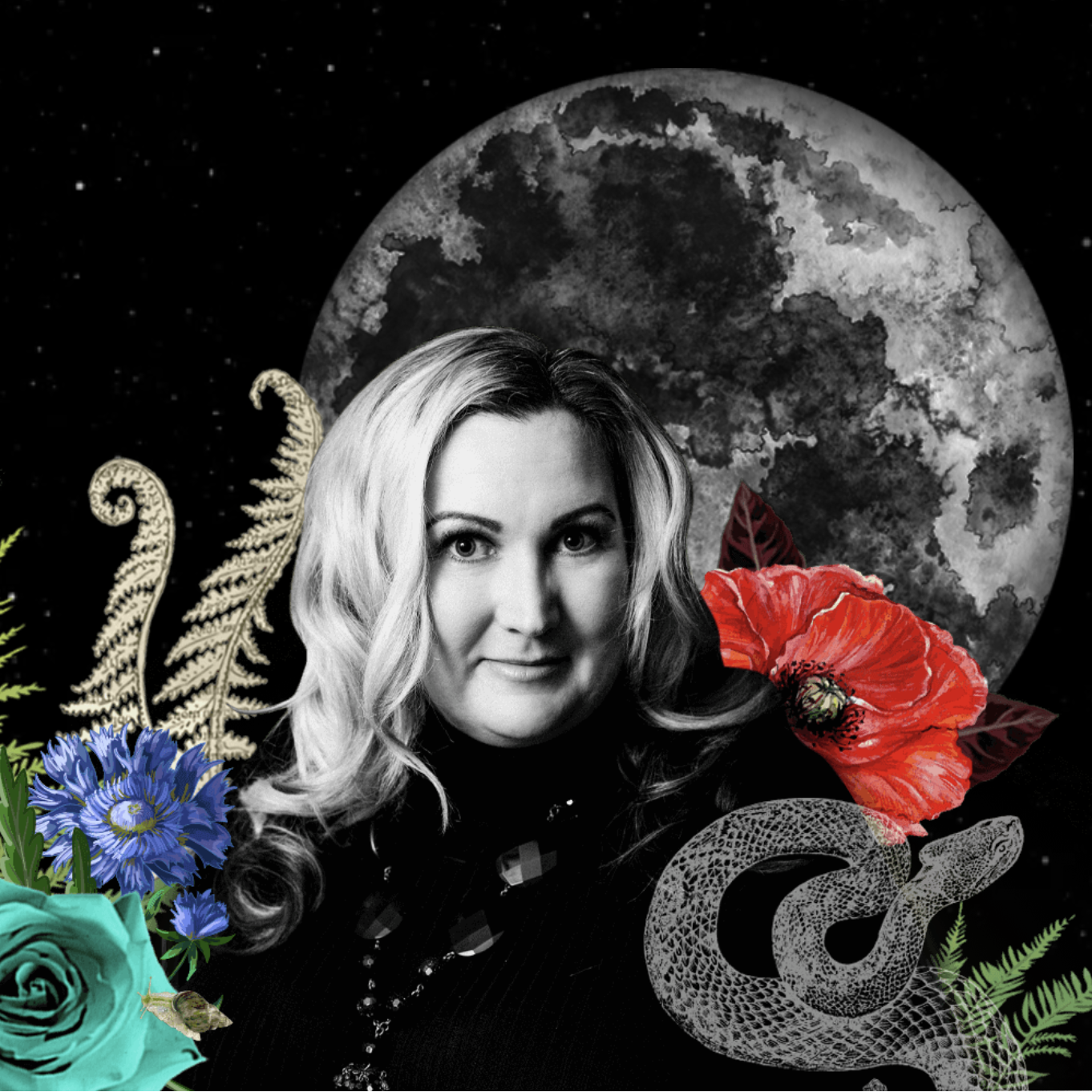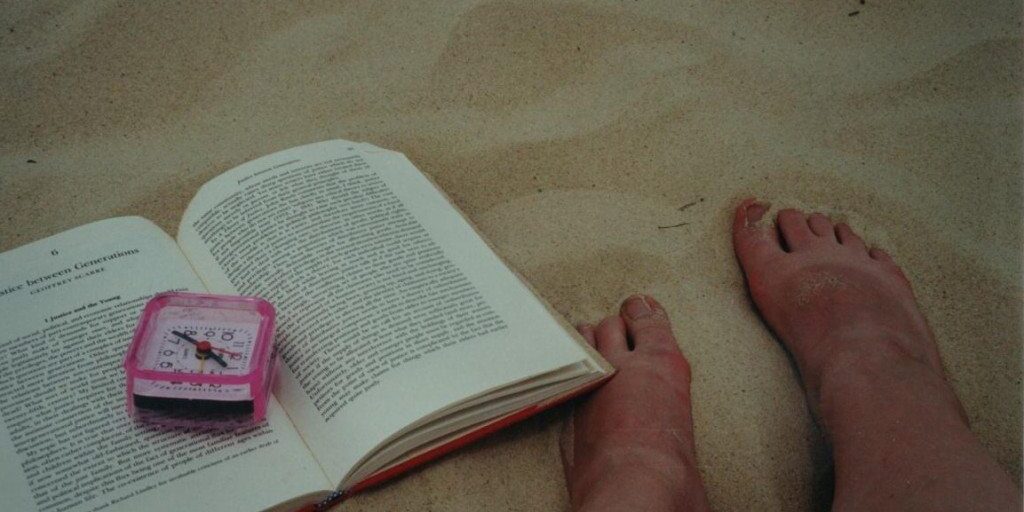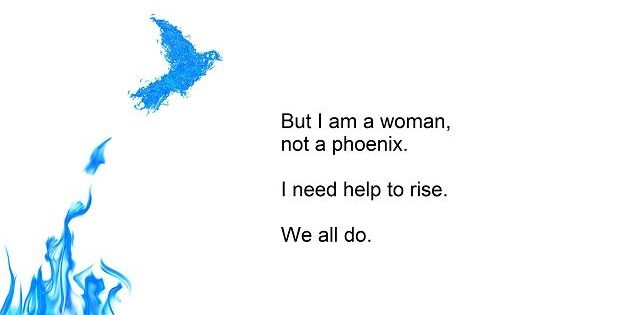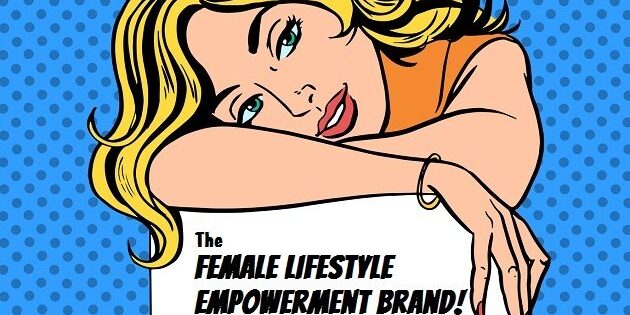On Women and POWER

Let’s build more of it and use it wisely
Nearly every woman I know who is focused on her creative work or career is in a mastermind.
Nearly every person I know is actively trying to heal a cultural injury — diet culture, body image, asymmetrical relationships, self-doubt, perfectionism, scarcity, OPPRESSION — and that means they’re reading voraciously; and/or enrolled in an online group, program, circle; or working with a coach or therapist.
Admittedly, I’m in a bubble.
But the phenomenon is wider than my friends, colleagues and clients.
- The self-help industry is valued at $9.9 billion annually.
- There are 50,000+ personal or executive coaches in the world, and that number grows by 1,500 professionals each year.
- The coaching industry is worth more than $1 billion each year. (Some estimates put it at more than $2 billion)
- In most countries, more than half of all coaches are women (in some countries, the number is as high as 76%)
- The ICF says that globally, 54% of all coaching clients are women — and frankly, that number seems low.
If the demand for self-help, life coaching and executive coaching are indicators that women are trying to get really clear on who they are and what they want, and get guidance and support to chase those dreams…
Then there is no ambition gap.
Ambition doesn’t have a gender.
***
Women are ambitious.
But that’s something we often don’t like to talk about. Ambition often feels like a dirty word. It connotes striving, selfishness, calculation, relentlessness…
All characteristics that we, as a culture, suppress in girls and women.
Same with power.
I suspect one of the reasons that the self-help and coaching world loves the word ’empowerment’ so much is because both women coaches and women clients recoil from the word power.
(I don’t often see copy that says “I help women build power”. Instead it will be a passive construction like “I help empower women to ____.”)
It’s understandable: Anyone who holds a marginalized status in our society knows only too well how power is abused and used to harm and exploit other people.
***
I think we need to broaden the way we think about power.
I don’t think power is bad.
Power can be enormously productive and generative and can be used to foster human flourishing.
Power can be used to create justice rather than injustice.
I also don’t think power is inherent.
Power is relational and happens between people.
It’s not static, it’s changing.
There are “up-power” positions where you have more power than the other person or people and “down-power” positions where you are the person with the least power (Cedar Barstow) and all of us occupy both of these positions as we move throughout our day and our lives.
There is earned power that you deserve, and unearned power (privilege) that you do not (Barstow).
Cedar Barstow writes that under-using your power is just as much a misuse of power as abusing your power.
If we have the power to act, support, defend and protect and we don’t, that’s a misuse of power.
If you have the power to influence outcomes in your own life and our culture and you don’t, that’s a tragic squandering of power.
If you have the potential to grow your earned power and steward it generatively and don’t, that’s a misuse of your own power.
(h/t to Holly Truhlar for introducing me to Cedar Barstow’s work.)
***
I want women to train ourselves to admit we’re ambitious and want power — the power to create meaningful work, the power to be recognized and compensated for our contributions, the power to create a just world, the power to take care of our loved ones, the power to develop our communities, the power to protect ourselves and others, the power to create, earn, self-actualize and accomplish our dreams.
I want us to normalize ambition and power and normalize the association between power and women.
(And so I think we should stop ‘playing small’ (Tara Mohr) and playing it cute by using the word ’empowerment’ when what we mean is power.)
AND.
One of the reasons I write critically about The Female Lifestyle Empowerment Brand (FLEB) and its purveyors is because I see some women leveraging pretty privilege, white privilege, thin privilege and class privilege (and, and, and) to build a socially-permissible power by manufacturing authority over other women.
That’s always been okay with the powers that be.
It’s a form of oppressive delegation.
A few white women condition other women, including women of colour, to obey their authority and norms and profit from that…
…whichs coincide neatly with what the white men positioned above the FLEBS enjoy; what helps them stay in power; and what helps the system endure.
I write critically of this because using the FLEB path to build power over other women, especially women with multiple marginalizations, is a misuse of power.
Yes, it allows a select few women to build power, prestige and wealth…by exploiting other women.
Which reinforces the system that oppresses everyone who is not a wealthy white cis straight man.
That’s not “empowerment”. That’s personal empire-building. That’s creating profit from blocking collective empowerment while constructing a cloud cover of empowerment-sounding noises.
***
I regularly see advocates sounding the alarm when some high-profile women — usually white women and Female Lifestyle Empowerment Brands — are power-building for personal empire and are switching places in the system (from prey to predator) rather than seeking to change the system.
These FLEB brands/people (gawd, with lifestyle marketing, it’s so hard to tell the difference) are not building power for mutual aid and collective transformation. Instead, they’re personal-power-building and reinforcing the oppressive status quo while making revolutionary-sounding noises about collective “empowerment”.
Pointing that pattern out is important. That’s why I write about the pattern (FLEB) rather than individual people.
(When we point to individuals, we run the risk of making it seem like there are bad apples rather than a rotten system and that “they” are doing something “we” are not; we also can inadvertently default to our unconscious biases…which can then slide into deploying the abusive tactics we’re otherwise trying to dismantle (h/t Kimberley Foster).
For example: I’ve seen brilliant social justice advocates I otherwise respect blame mothers for the hate crimes and violence of their adult sons — as though boys and men don’t grow up in a wider culture that normalizes and incentivizes racism and sexism (and, and, and). As though women are to blame for men’s violence against women.
We do need to train ourselves in pattern-spotting so we can avoid falling into it and perpetuating a harmful system — as consumers or sellers and leaders or followers.
(I’m both. Most of us are.)
And sometimes, often at the same time, I suspect we’re lashing out and seeking to destroy because, unconsciously, we don’t trust women with power. Picking up signals of woman + power violates our ‘feminine conditioning’ (Jo Casey’s phrase). Our social biases get activated.
Sometimes I despair because I see us trying to block power in other women because of our own internalized misogyny.
Sometimes I see us flattening people into types and identities and automatically and perhaps unconsciously concluding that women with that kind of identity or status — privileged or marginalized — cannot be trusted with power.
I see some women — Female Lifestyle Empowerment Brands AND apparently feminist culture makers — building power over other women by using oppressive tactics like racism and ableism and transphobia and fat phobia and bias and shunning and public humiliation.
And the system smiles.
We’re allowed to do that.
We’re supposed to do that.
We’re allowed to swim in that small pool and drown each other in that pool just as long as we stay out of other waters — the waters where real political power is consolidated.
***
THIS IS NOT TO SAY ‘STOP SPEAKING OUT AGAINST INJUSTICE’. Never.
It’s to say let’s carefully parse our motivations and make sure we’re not participating in the very thing we oppose or finding ‘politically acceptable outlets for [our] abuse’ (Kimberly Foster).
***
One of the things I was so thrilled about, vicariously, as a Canadian watching the US midterms, was how so many BIPOC and LGTBQIA+ and women (and all the overlapping identities) were elected because they built credibility and personal + coalition power in their communities and the wider cultural arena.
They earned power and they’re not using it to lord over each other. They’re using it to influence the course of a nation.
***
Parallel: I see super feminist editors getting hired at mainstream feminist publications and hiring the excellence found in communities usually excluded from that access. (h/t a conversation with Virgie Tovar).
And so, encouragingly, what was once radical truth-telling analysis is now moving into the mainstream. (h/t Rebecca Solnit)
***
This isn’t a terribly precise documentation. It’s a sketch.
My point is this: ’empowerment’ was supposed to mean personal AND collective power-building for marginalized communities (that’s what it meant when Dr. Barbara Bryant Solomon wrote her textbook Black Empowerment) but now it’s usually a signal that someone has built a brand premised on cultivating power over other women.
‘Empowerment’ in the mainstream now seems to mean reinforcing various existing inequities and privileges so that pretty white wealthy heterosexy (that’s not a typo) cis women can build socially-sanctioned power over fat women, women of colour, queer women, trans women (and, and, and).
And yes, we’ve got to scan for and pick up those signals and connect those dots so that we can avoid not participating in, leveraging or cosigning that kind of power building.
Because it’s cementing our own oppression.
AND.
Ambition is not the enemy.
Power building is not the enemy.
We, as individual women and as a collective, do have to build personal and collective power.
If we don’t — if we underuse our power — then we’re misusing our own power. We’re avoiding opportunities to create new outcomes and a new culture.
Not all power building is an indicator of imminent oppression or abuse.
We can only influence and change the future if we use and grow our power to do that.
SO.
Let’s stop retreating from the word power. Let’s stop softening it and playing small by defaulting to ’empowerment’.
Let’s normalize and humanize ambition and power.
Any time we’re not allowed to have a normal human desire — like ambition or self actualization aka POWER — or the resources every human needs for self-preservation, we’re participating in our own oppression.
(Ije Ude of Turtle Tank calls that “self-oppression”.)
And we deserve so much better than that.
We deserve the power to make things right in our own lives and our communities.
Let’s build that power — and use it. Wisely. Justly.
Because #WeAreTheCultureMakers.



